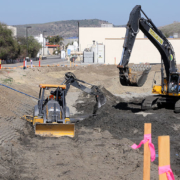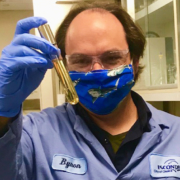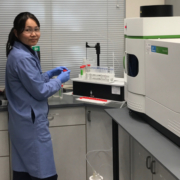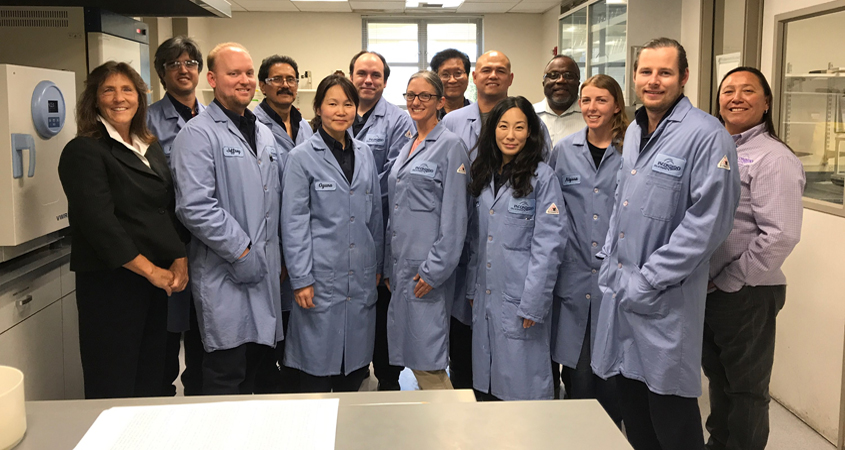The coronavirus pandemic forced the City of Escondido’s Water Quality Laboratory to rethink its lab operations without compromising community health or employee wellbeing while ensuring the clean, safe, and efficient operation of the city. Through teamwork and creative thinking, the lab found success in maintaining its essential work.
“Whether we have a pandemic or not, people still want to open their taps and have clean drinking water,” said Ralph Ginese, supervising chemist with the City of Escondido.
Hale Avenue Resource Recovery Facility Laboratory Superintendent Nicki Branch says employee safety was addressed first.
“We immediately enforced the six-foot social distancing requirement and frequent handwashing,” said Branch. “The facility cleaning staff increased disinfection wipedown of all surfaces. We stopped having group staff and safety meetings by switching to online. We have changed our work schedule, essentially cutting it in half on a rotating schedule and allowing all employees to be able to telecommute from home periodically.”
The 14 employees have been provided additional personal protective equipment including facemasks.
“Staff is able to do administrative work, lab paperwork, study for exams, safety training, research on the industry and attend webinars,” said Branch.
Half of the staff members remain at the lab facility full-time, where they conduct analyses to verify the quality of wastewater treatment processes to safeguard community health, as well as required monthly and quarterly testing.
Unseasonal rainfall creates additional challenges
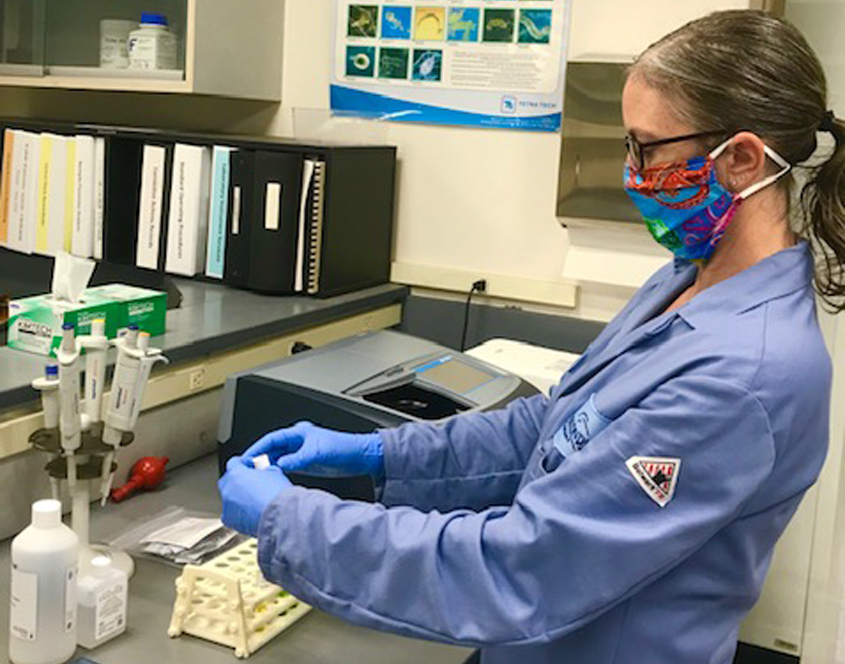
As part of ongoing monitoring at the Escondido Water Quality Lab, Associate Chemist Sarah Shapard performs tests analyzing for ammonia. Photo: City of Escondido
Recent heavy rains in Escondido complicated the testing process. Branch said several lab staff were placed on call in the event additional testing was needed due to a possible emergency-permitted tertiary discharge to nearby Escondido Creek due to high flows after five days of rain.
“They were all game to come in if needed on a Saturday to assist, but fortunately the operations staff worked miracles to keep us from discharging,” said Branch. “Heavy rains also caused a situation where additional sampling of lakes for drinking water analysis occurred, and the lab staff responded immediately to help the drinking water division with sampling and analysis.”
The Escondido lab routinely tests six sample sites along the outfall line.
“It’s a full-blown scan, so getting samples to contact labs would have been a real challenge,” said Ginese, crediting the work of the city’s operations staff to prevent any discharge into the creek.
“I am so proud of all the staff at the HARRF Laboratory for responding to this Covid -19 pandemic in a professional manner, adapting quickly to our City policies requiring social distancing, and for offering to come in on emergency situations when needed,” said Branch.
The San Diego County Water Authority and its 24 member agencies have increased regional coordination and communication to ensure the coronavirus pandemic does not impact safe and secure water service for San Diego County.

